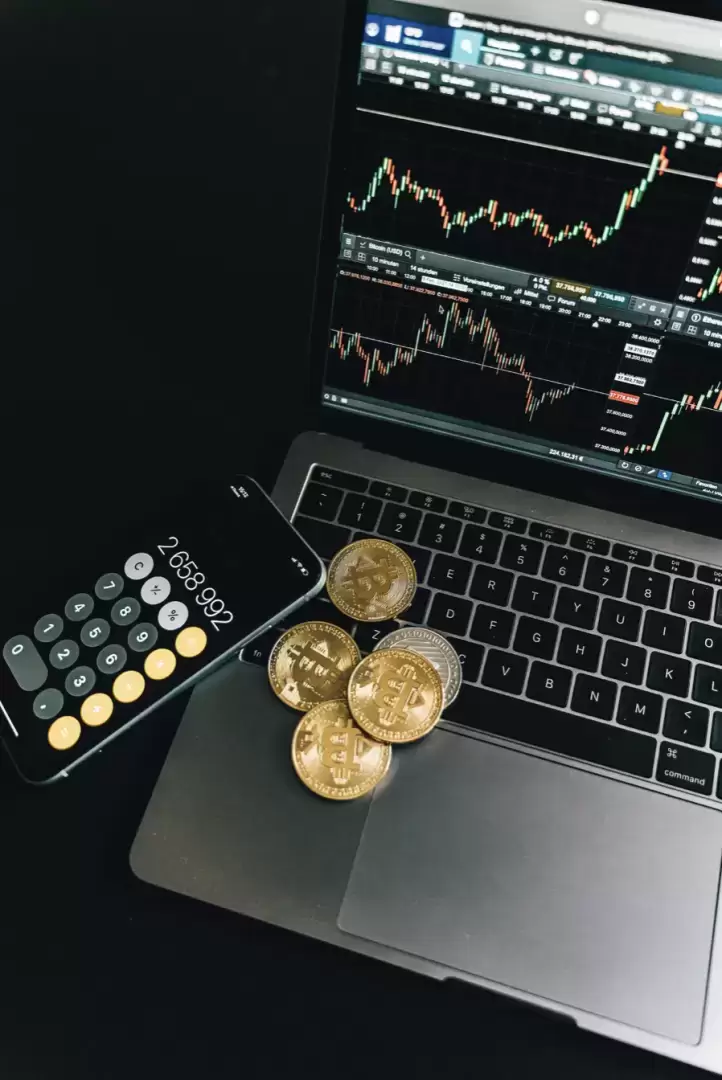 |
|
 |
|
 |
|
 |
|
 |
|
 |
|
 |
|
 |
|
 |
|
 |
|
 |
|
 |
|
 |
|
 |
|
 |
|
ビットコインは、専門のオンラインチャットにのみ登場したが、現在は主流の投資ツールとして機能する限界仮想通貨として始まりました

Bitcoin began as a fringe virtual currency discussed in specialized online chats, but it has now become a mainstream investment asset with substantial interest from institutional financiers. Over the past decade, institutional investors have played a crucial role in shaping Bitcoin’s market value by influencing price fluctuations, increasing liquidity, and transforming market sentiment.
ビットコインは、専門のオンラインチャットで議論されたフリンジの仮想通貨として始まりましたが、現在では機関の投資家から大きな関心を持つ主流の投資資産になりました。過去10年にわたり、機関投資家は、価格の変動に影響を与え、流動性を高め、市場感情を変えることにより、ビットコインの市場価値を形成する上で重要な役割を果たしてきました。
Corporate headquarters, hedge funds, and governmental entities have progressively allocated portions of their financial portfolios to Bitcoin, contributing to the cryptocurrency market’s growing legitimacy and stability.
本社、ヘッジファンド、および政府機関は、金融ポートフォリオの部分をビットコインに徐々に割り当て、暗号通貨市場の正当性と安定性の高まりに貢献しています。
The development from retail market speculators to institutional investors creates substantial consequences for BTC to USD dynamics while influencing its position within standard financial sectors and its future as a globally recognized asset class
小売市場の投機家から機関投資家への開発は、BTCからUSDダイナミクスに大きな結果を生み出し、標準的な金融セクター内での地位と世界的に認められた資産クラスとしての将来に影響を与えます
Institutional Adoption and Bitcoin’s Price Movements
制度的採用とビットコインの価格動き
Publicly traded companies, pension funds, and asset managers have brought institutional stability to Bitcoin by entering the market. Institutional investors tend to make systematic, long-term purchases, unlike retail traders who often react to social media trends and short-term price movements. As a result, institutional investments have contributed to reduced price volatility and improved Bitcoin’s resilience against economic turbulence.
公開されている企業、年金基金、および資産管理者は、市場に参入することにより、ビットコインに制度の安定性をもたらしました。機関投資家は、ソーシャルメディアのトレンドや短期的な価格の動きにしばしば対応する小売業者とは異なり、体系的で長期的な購入をする傾向があります。その結果、機関投資は、価格の変動の減少と、経済的乱流に対するビットコインの回復力の改善に貢献しています。
Major companies such as Tesla, MicroStrategy, and Square have entered the Bitcoin market, which has a significant impact on its value. MicroStrategy, led by CEO Michael Saylor, drew attention for continuously buying Bitcoin, with Saylor arguing that it serves as a superior store of value compared to cash.
Tesla、MicroStrategy、Squareなどの主要企業がビットコイン市場に参入しており、その価値に大きな影響を与えています。 CEO Michael Saylorが率いるMicroStrategyは、ビットコインを継続的に購入したことで注目を集めました。
Rising institutional demand has a positive impact on Bitcoin market liquidity. More liquid Bitcoin markets promote better price discovery mechanisms, thus reducing previous large swings that typically occurred in cryptocurrency markets. Institutional investing brings stability to Bitcoin, but its price behavior gradually depends more on financial market trends.
制度的需要の上昇は、ビットコイン市場の流動性にプラスの影響を与えます。より多くの液体ビットコイン市場は、より良い価格発見メカニズムを促進するため、暗号通貨市場で通常発生した以前の大きなスイングを減らします。機関投資はビットコインに安定性をもたらしますが、その価格行動は徐々に金融市場の動向に依存します。
Bitcoin’s Correlation with Traditional Financial Markets
ビットコインと従来の金融市場との相関
The increasing institutional adoption of Bitcoin has led to stronger correlation with established market financial institutions. Initially, Bitcoin operated as an independent asset class, relatively unaffected by fluctuations in stock and bond markets.
ビットコインの制度的採用の増加により、確立された市場金融機関との相関が強くなりました。当初、ビットコインは独立した資産クラスとして運営されており、株式市場と債券市場の変動により比較的影響を受けませんでした。
The number of institutions that hold Bitcoin on their balance sheets has led the digital asset to shift to behavior similar to risk-on assets, which track equity market performance.
バランスシートにビットコインを保持している機関の数は、デジタル資産をリスクオン資産と同様の行動に移行するようになりました。
The price drops of Bitcoin mirror those observed in the S&P 500 index alongside other significant market indices throughout major economic downturns. Institutional investors consider Bitcoin a diverse portfolio element that they modify according to macroeconomic indicators. Institutional Bitcoin asset sales become necessary when the stock market crashes to protect other investments, thus creating short-term Bitcoin price drops.
ビットコインの価格低下は、S&P 500インデックスで観察されたものを、主要な経済不況を通じて他の重要な市場指数とともに反映しています。機関投資家は、ビットコインをマクロ経済指標に従って変更する多様なポートフォリオ要素と考えています。株式市場が他の投資を保護するために株式市場が暴落すると、機関のビットコイン資産の販売が必要になり、短期のビットコイン価格が下がります。
Bitcoin as a Global Asset: The Case of Kenya
グローバル資産としてのビットコイン:ケニアの場合
Institutional investment in Bitcoin is not limited to the United States and Europe; it is also expanding into emerging markets such as Kenya. The growing institutional engagement with Bitcoin throughout the emerging Kenyan economy brings about fresh commercial prospects and operational difficulties.
ビットコインへの制度的投資は、米国とヨーロッパに限定されません。また、ケニアなどの新興市場にも拡大しています。新興ケニア経済全体のビットコインとの組織的関与の高まりは、新鮮な商業的見通しと運用上の困難をもたらします。
Mobile banking and digital financial solutions, which Kenya pioneered through M-Pesa service, have changed the landscape of financial inclusion throughout the country. Kenya’s digital-first economic environment makes it an ideal candidate for widespread Bitcoin adoption.
ケニアがM-PESAサービスを通じて開拓したモバイルバンキングおよびデジタルファイナンシャルソリューションは、全国の金融包摂の状況を変えました。ケニアのデジタルファースト経済環境により、ビットコインの広範な採用の理想的な候補者となっています。
Institutional engagement in Bitcoin enhances its legitimacy and accessibility in Kenya, providing new economic opportunities.
ビットコインへの制度的関与は、ケニアの正当性とアクセシビリティを高め、新しい経済的機会を提供します。
When Bitcoin gains more credibility, financial providers will begin to operate Bitcoin-related product services through their payment systems. Integrating Bitcoin-related products would create better remittances and reduce costs while expanding financial services to unbanked Kenyan citizens.
ビットコインがより信頼性を獲得すると、金融プロバイダーは、支払いシステムを通じてビットコイン関連の製品サービスの運営を開始します。ビットコイン関連の製品を統合すると、より良い送金を生み出し、コストを削減しながら、銀行のないケニア市民に金融サービスを拡大します。
However, more institutional funding in Bitcoin raises concerns regarding centralization. Excessive institutional investment in Bitcoin would undermine its decentralized nature when concentrated within a few entities. Additionally, substantial institutional control over Bitcoin in developing countries such as Kenya leaves developing economies vulnerable to inflation risks and economic instabilities that limit accessibility to Bitcoin assets.
ただし、ビットコインでの制度的資金が増えると、集中化に関する懸念が生じます。ビットコインへの過度の機関投資は、少数のエンティティに集中すると、その分散型の性質を損なうでしょう。さらに、ケニアなどの発展途上国におけるビットコインに対する実質的な制度的管理は、ビットコイン資産へのアクセシビリティを制限するインフレリスクと経済的不安定性に対して脆弱な発展途上経済を去ります。
The Future of Institutional Investment in Bitcoin
ビットコインへの制度投資の将来
The growth of institutional investment in Bitcoin will intensify with improved regulatory frameworks combined with new financial products coming to market. Creating Bitcoin Exchange-Traded Funds (ETFs) is one of the leading steps toward attracting institutions to participate in assets. This innovation bridges the gap between traditional finance and the cryptocurrency market, attracting more institutional capital.
ビットコインへの制度投資の成長は、規制の枠組みが改善されたことと、市場に出てくる新しい金融商品と組み合わせることで激化します。ビットコインの交換資金(ETF)の作成は、資産に参加する機関を引き付けるための主要なステップの1つです。このイノベーションは、従来の金融と暗号通貨市場との間のギャップを埋め、より多くの制度的資本を引き付けます。
Meanwhile, central banks worldwide are increasingly exploring Central Bank Digital Currencies (CBDCs), reflecting growing governmental interest in blockchain technology. While CBDCs are distinct from Bitcoin, their development signals a broader acceptance of digital assets within regulated financial systems.
一方、世界中の中央銀行は、ブロックチェーン技術に対する政府の関心の高まりを反映して、中央銀行のデジタル通貨(CBDC)をますます調査しています。 CBDCはビットコインとは異なりますが、その開発は規制された金融システム内のデジタル資産のより広範な受け入れを示しています。
Despite growing institutional interest, regulatory uncertainties pose significant challenges to Bitcoin’s mainstream adoption. Governments worldwide have adopted different stances on cryptocurrency, ranging from open support to stringent restrictions or outright bans.
制度上の関心が高まっているにもかかわらず、規制の不確実性はビットコインの主流の採用に大きな課題をもたらします。世界中の政府は、オープンなサポートから厳しい制限や完全な禁止に至るまで、暗号通貨のさまざまなスタンスを採用しています。
Regulatory talks about cryptocurrency in Kenya are still evolving as authorities need to evaluate the advantages and disadvantages of Bitcoin adoption, including financial risks, money laundering, and system instability.
ケニアの暗号通貨についての規制協議は、当局が金融リスク、マネーロンダリング、システムの不安定性など、ビットコインの採用の利点と欠点を評価する必要があるため、まだ進化しています。
The market capitalization of Bitcoin strongly depends on institutional investment because such capital enhances sustainable performance and market expansion. Financial trends from traditional markets increasingly determine Bitcoin’s price fluctuations as more institutions continue adding Bitcoin to their investment portfolios.
ビットコインの時価総額は、そのような資本が持続可能なパフォーマンスと市場の拡大を促進するため、機関投資に強く依存しています。従来の市場からの財務動向は、より多くの機関が投資ポートフォリオにビットコインを追加し続けるにつれて、ビットコインの価格変動をますます決定します。
Institutional engagement in Bitcoin across Kenya and similar developing markets creates positive prospects for increased accessibility, and several obstacles concerning centralization and user access.
ケニアと同様の発展途上市場を横断するビットコインへの制度的関与は、アクセシビリティを向上させるための前向きな見通しと、集中化とユーザーアクセスに関するいくつかの障害を生み出します。
As institutional investment in Bitcoin continues to grow, it will drive more mainstream adoption and integration with global financial markets will be properly defined. Bitcoin preserves its decentralized foundation, but institutional investment participation has led to its recognition
ビットコインへの制度投資が成長し続けるにつれて、より主流の採用を促進し、グローバルな金融市場との統合が適切に定義されます。ビットコインはその分散型基盤を保持していますが、機関投資の参加はその認識につながりました
免責事項:info@kdj.com
提供される情報は取引に関するアドバイスではありません。 kdj.com は、この記事で提供される情報に基づいて行われた投資に対して一切の責任を負いません。暗号通貨は変動性が高いため、十分な調査を行った上で慎重に投資することを強くお勧めします。
このウェブサイトで使用されているコンテンツが著作権を侵害していると思われる場合は、直ちに当社 (info@kdj.com) までご連絡ください。速やかに削除させていただきます。
-

-

-

-

- ペペの価格は2%上昇しました
- 2025-04-03 16:20:12
- ペペの価格は、過去24時間で2%上昇し、ESTの午後11時17分(EST)の取引量が21%増加して23億ドルになりました。
-

-

-

-

- Gamefi:ゲームとファイナンスの動的な融合
- 2025-04-03 16:10:12
- GameFiは、ブロックチェーンテクノロジーを活用してプレイと投資の方法を変革するゲームとファイナンスの動的な融合です。
-


























































